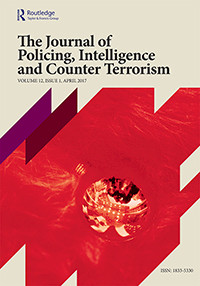 Journal abstract
Journal abstract
De-radicalisation programmes in Indonesia often feature ideological conversion and general inadequacies in human and material resources to carry out the technical aspects of the de-radicalisation programme. Worldwide, civil society organisations (CSOs) are increasingly considered as a key partner in de-radicalisation of violent extremist offenders (VEOs). In Indonesia, however, de-radicalisation programmes are often criticised for their centralised nature in which spaces for non-state actors are limited. This paper critically examines the role of CSOs in mitigating the shortcomings of government-sponsored de-radicalisation programmes in Indonesia. Although CSOs have strong ties with the people they work with, can reach to unreachable groups and function as a ‘resilience group’ in violence prevention, the paper contends that there continues to be a perpetual lack of coordination between the government and CSOs in countering violent extremism. Drawing on a desk-based review of literature on de-radicalisation combined with interviews, this paper presents a thematic analysis of Indonesia's CVE programmes and CSOs’ engagement in de-radicalisation. The paper concludes by offering a possible roadmap that might help enhancing partnerships between government and CSOs in de-radicalisation of violent extremist offenders.
Countering violent extremism through state-society partnerships: a case study of de-radicalisation programmes in Indonesia
24 February 2020
From “former comrades” to “near enemy”: the narrative template of “armed struggle” and conflicting discourses on Violent Dissident Irish Republican activity (VDR)
‘I grew a beard and my dad flipped out!’ Co-option of British Muslim parents in countering ‘extremism’ within their families in Bradford and Leeds
Hit the core or weaken the periphery? Comparing strategies to break the circle of violence with an embryonic terrorist group: The case of Galician Resistance
‘Just three Skittles in a bowl will kill you. Would you take a handful?’ Evidence, public policy and Islamist-inspired violent extremism